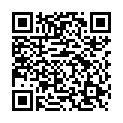Learning outcomes:
Students will develop, expand and deepen their specialized and methodological knowledge about:
_ the relevant concepts, characteristics and approaches of leisure, sports and tourism studies.
_ leisure, sports and tourism sciences as interdisciplinary sciences.
_ the essential areas of lifestyle research (in particular leisure, sports, tourism).
_ the analysis of the behavior, wishes and needs of people in work, leisure, sports and tourism (especially from an economic perspective)
_ scientifically-based activities in the analysis, evaluation, reflection, development and implementation of recommendations for action (evaluation, preparing expert reports, economic and political consulting, contract research, as well as lectures, seminars and teaching).
After successfully completing this module, students will:
_ have gained deeper insights into leisure, sports and tourism studies and be able to apply scientific methods in these areas.
International and intercultural relevance:
_ International approaches in leisure, sports and tourism studies
_ Examples from international research projects with a high practical relevance (application-oriented teaching)
Practical relevance:
_ Science-based economic and political consulting in the leisure, sports and tourism sector
_ (Economic) and scientific methods in the leisure, sports and tourism sector
_ Social competence:
_ Guest lectures, excursions (together with students from different semesters and study programs)
_ In particular, management concepts and scientific methods with high relevance for sustainable management in the leisure, sports and tourism sector
_ Students will expand and deepen their ability to use modern presentation techniques, their project and team work skills, as well as scientific working skills.
After successfully completing this module, students will:
_ be able to understand and analyze scientific issues and special aspects of leisure, sports and tourism science, as well as be able to map and explain them in planning models.
_ be able to apply planning and control methods in leisure, sports and tourism science (strategic planning and operative implementation).
_ be able to describe, develop, plan and design application-oriented research and consulting processes in the leisure, sports and tourism sector.
_ be able to cooperate and evaluate within the framework of knowledge and project management (project focus/definition, planning, project structuring, prioritization/derivation/analysis, activity planning, implementation, success control).
_ be able to classify leisure, sports and tourism science into the general science system and differentiate the sub-areas of the above-mentioned scientific fields.
[updated 20.01.2020]
|
Teaching methods/Media:
Literature:
_ Current literature lists will be made available to students at the beginning of the semester (exemplary references):
_ Bieger, T., Tourismuslehre _ Ein Grundriss, Haupt, Bern u. a., latest edition
_ Bieger, T., Keller, P., (Hrsg.), Managing Change in Tourism: Creating Opportunities - Overcoming Obstacles, Berlin, latest edition
_ Bowdin, G., Allen, J., O´Toole, W., Harris, R., & Mc Donnell, I., Events Management, Great Britain: Elsevier, latest edition
_ Böventer, E. von, Ökonomische Theorie des Tourismus, Campus, Frankfurt, latest edition
_ Breidenbach, R., Freizeitwirtschaft und Tourismus, latest edition
_ Brähmig, K, (2011), Ausschuss für Tourismus, Deutscher Bundestag, Stellungnahme Freizeitparks, http://www.bundestag.de/bundestag/ausschuesse17/a20/anhoerungen/anhoerung_freizeitparks/Stellungnahmen/Stellungnahme-Hahne.pdf
_ Buck, M., Conrady, R., (Hrsg.), Trends and Issues in Global Tourism 2007 ff, Springer, Heidelberg, 2007 ff
_ Cooper, C. (u. a.) (Hrsg.), Tourism development _ environmental and community issues, latest edition
_ Csikszentmihalyi, M.: Das Flow-Erlebnis. Stuttgart 1993
_ Csikszentmihalyi, M./Jackson, S.A.: Flow im Sport. München 2000
_ FdSnow, Fachzeitschrift für den Skisport, Freunde des Skisports im Deutschen Skiverband
_ Forsberg, K. et all, (2000), Visualizing Project Management, A model for business and technical success, Second Edition, John Wiley and Sons Inc.
_ Freyer, W., Sport-Marketing: Modernes Marketing-Management für die Sportwirtschaft, Berlin, latest edition
_ Freyer, W., Tourismus-Marketing, Oldenbourg, München, latest edition
_ Freyer, W. (Hrsg.), Tourismus: Einführung in die Fremdenverkehrsökonomie, latest edition
_ Green Champions in Sport and Environment, Guide to environmentally-sound large sporting events, German Federal Ministry for the Environment, Nature Conservation and Nuclear Safety, German Olympic Sports Confederation, Berlin, 2007
_ Haedrich, G., Kaspar, C. u. a. (Hrsg.), Tourismus-Management, 3. Auflage, de Gruyter, Berlin u. a., 1998
_ Hayes, N., Saving Sailing, Crickhollow, Milwaukee, 2009, How _ and more importantly _ why? A provocative argument and action plan _ sure to appeal to sailors everywhere _ for the revival of family sailing and quality uses of free time for rewarding intergenerational pastimes, lifelong hobbies, and free-time pursuits.
_ Hobel, B. and Schütte, S. (2006), Projektmanagement, Wiesbaden, Betriebswirtschaftlicher Verlag Gabler
_ Hofstede, G.; Interkulturelle Zusammenarbeit. Kulturen - Organisationen - Management, Wiesbaden 1993
_ Holloway, C., The business of tourism, 7. Auflage, Pearson Education, London, 2006
_ Hoye, R., Sport management: principles and applications, 2. Auflage, Elsevier, Amsterdam u. a., 2009
_ Hoyle, L., Event marketing how to successfully promote events, festivals, conventions and expositions, Wiley, New York, latest edition
_ Hungenberg, H., Problemlösung und Kommunikation, München, latest edition
_ Institut für Mobilitätsforschung (Hrsg.), Erlebniswelten und Tourismus, Springer, Berlin, 2004
_ Letzner, V., Tourismusökonomie _ Volkswirtschaftliche Aspekte rund ums Reisen, Oldenbourg, München, 2010
_ Neumann, P.: Das Wagnis im Sport. Schorndorf 1999
_ Nufer, G., Bühler, A., (Hrsg.), Management und Marketing im Sport _ Betriebswirtschaftliche Grundlagen und Anwendungen der Sportökonomie, Berlin, latest edition
_ Opaschowski, H.W.: Xtrem _ Der kalkulierte Wahnsinn. Hamburg 2000
_ Opaschowski, H.W.: Deutschland 2020. Wie wir morgen leben _ Prognosen der Wissenschaft. Wiesbaden 2006
_ Opaschowski, H.W., Freizeitwirtschaft - Die Leitökonomie der Zukunft. Zukunft. Bildung. Lebensqualität, 2007
_ Opaschowski, H.W.: Freizeitökonomie _ Marketing von Erlebniswelten. Opladen 1995
_ Schulze, G.: Die Erlebnisgesellschaft, Kultursoziologie der Gegenwart Frankfurt 1995
_ Wopp, Ch.: Entwicklungen und Perspektiven des Freizeitsports. Meyer & Meyer, Aachen 1995
_ Opaschowski, H., Das gekaufte Paradies
[updated 20.01.2020]
|


